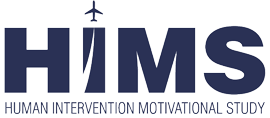DUI/DWI INFORMATION
Arrests and Convictions for Driving Under the Influence (DUI) or Driving While Impaired (DWI) May Result in Inadmissibiltity into Canada
Years ago, a first-time DUI/DWI conviction properly reported to the FAA ordinarily resulted in no other consequences to the pilot. (See Reporting Obligation under 14 C.F.R. Section 61.15 (e)). Now, not only do pilots need to report arrests as well as convictions (and other “administrative actions”) on the Application for Airman Medical Certificate (form 8500), but such convictions also present a potential bar to entry into Canada. The Immigration and Refugee Protection Act (IRPA) is a Canadian law providing that foreign nationals who have committed a criminal offense in a foreign jurisdiction that, if it took place in Canada, could be prosecuted by way of indictment, are considered “inadmissible” for entry into Canada. Operating a motor vehicle while impaired by alcohol or a drug is such an offense in Canada. Thus, pilots convicted of DUIs and DWIs in the US may be prohibited from Canadian entry.
For those with such convictions, relief from the rule barring entry into Canada may be obtained by a determination of “rehabilitation” under Canadian law, or by obtaining a “temporary resident permit.” For more information about the criteria and application process for such “rehabilitation,” see the general description below.
In 2012, Canada liberalized its temporary visitor permit provisions for first-time visitors with recent DUI/DWI convictions to enter the country. See the Canadian policy on criminal inadmissibility.
Information Provided by the Canadian Consulate General’s Office
Persons who have been convicted of a CRIMINAL OFFENCE in ANY COUNTRY may be INADMISSIBLE TO CANADA as a result of their criminal record. Even persons who do not require a Visa to enter Canada may still be refused permission to enter Canada if they are MEMBERS OF AN INADMISSIBLE CLASS.
INADMISSIBLE CLASSES:
Members of Inadmissible Classes include those who have been convicted of MINOR OFFENCES (including shoplifting, theft, assault, dangerous driving, unauthorized possession of a firearm, possession of illegal substances, etc.), or of INDICTABLE CRIMINAL OFFENCES (including assault with a deadly weapon, manslaughter, etc.). As well, those who have been convicted of DRIVING WHILE UNDER THE INFLUENCE OF DRUGS OR ALCOHOL (DUI/DWI) are considered Members of an Inadmissible Class. Driving while under the influence of alcohol is regarded as an extremely serious offense in Canada.
Those who have received TRAFFIC VIOLATIONS (including parking/speeding tickets, etc.) and other minor violations (i.e. littering, etc.) most likely will NOT be prohibited from entering Canada. Similarly, those who have JUVENILE CONVICTIONS (convictions for crimes committed while under age 18) most likely will NOT be prohibited from entering Canada unless they could have been tried as an adult for their offenses.
Those who have been convicted of an offense OUTSIDE CANADA, and have had 5 years elapse since the termination of the custodial portion (if any) of the sentence imposed (not the sentence served), may apply for a Minister’s APPROVAL OF REHABILITATION. The Minister’s Approval will permanently remove the inadmissibility caused by conviction.
If less than 5 years have elapsed, or if persons are only seeking entry to Canada for a single or limited period, then they may apply for a TEMPORARY RESIDENT PERMIT.
**NOTE: In general, applications for Approvals of Rehabilitation take into consideration the nature of the offenses committed by the applicant, the number of offenses on the applicant’s record, the length of time since the last offense, reports from parole or probation officers, the purpose for which entry into Canada is sought, and the applicant’s standing in the community.
Who to Contact
The Canadian Embassy
The Immigration/Visa Section
501 Pennsylvania Avenue NW
Washington, DC 20001
Tel: (202) 682-1740
Fax: (202) 682-7689
